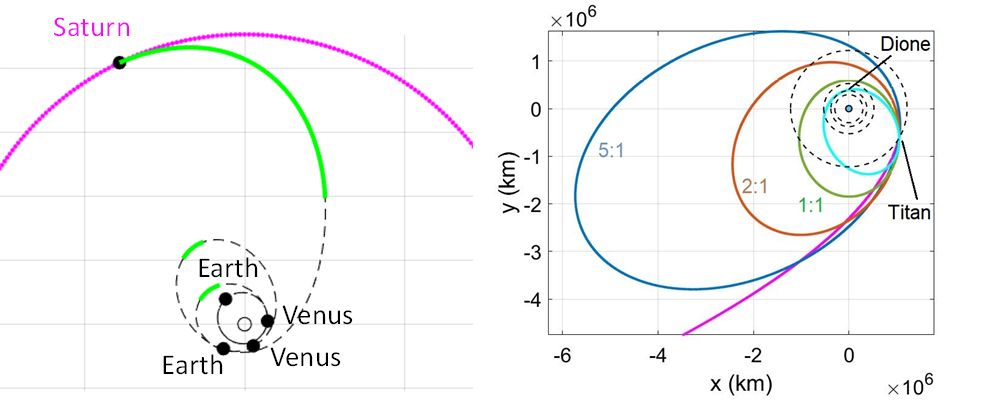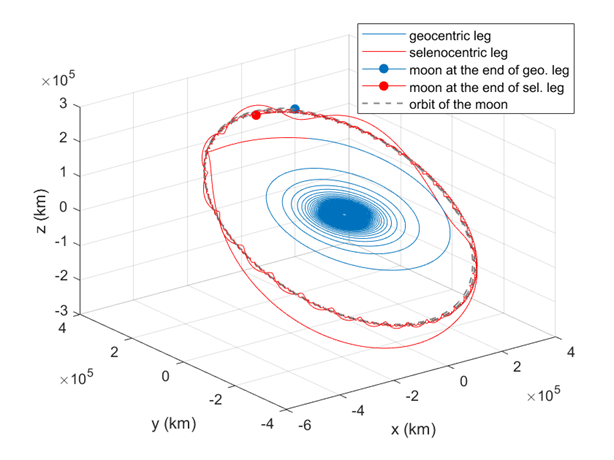- Admissions
- Academics
- Research Office
- Student Life
- News & Events
- Outreach
- About
Dr. Flores developed his Ph.D. dissertation at the Department of Aerospace Vehicles of the Polytechnic University of Madrid. He used micro-damage models to simulate slow crack propagation and environmentally assisted cracking in structural steels. His work was funded by the European Coal & Steel Community program “New technologies for structural steels”.
In 2003 he joined the International Center for Numerical Methods in Engineering (CIMNE) where he holds an Associate Research Professor position. He develops simulation tools for aerodynamics, hydraulics, aeroelasticity, structural analysis and orbital mechanics. Some relevant examples are:
• PUMI, a compressible finite-element unstructured flow solver for solving high-speed flows in complex geometries. It has been tested against industrial codes in the framework of several international research projects.
• PARACHUTES, a coupled aeroelastic solver for the dynamic analysis of parachute/payload systems (http://www.cimne.com/parachutes). The code has been recently upgraded to treat wind loads in inflatable structures.
• (PUMI/NEURAL) toolbox for neural networks for coupling with the simulation codes and development of reduced order models.
• A transient flow solver for hydraulic networks including modeling of suspended solids. This code is used to model Managed Pressure Drilling (MPD) operations in oil wells.
He has been a faculty member of the Polytechnic University of Catalonia (UPC) since 2003. He holds an Associate Professorship (currently on extended leave) at the School of Mechanical, Aerospace and Audiovisual Engineering of Terrassa (ESEIAAT). His areas of teaching include Structural analysis, Fluid dynamics, Aeroelasticity and Numerical methods.
Since 2006 Dr. Flores has held positions at the reviewing board of multiple research QA agencies (AIDIT, ACERTA Certification Ltd. and ACIE).
In 2010 he was appointed to the Scientific Committee of the International conference on textile composites and inflatable structures (MEMBRANES) jointly organized by IACM (International Association of Computational Mechanics) and ECCOMAS (European Community of Computational Methods in Applied Sciences).
In 2020 Dr. Flores joined Khalifa University, where he holds the position of Principal Research Scientist at the Aerospace Engineering Department. His work at KU focuses on development of orbit propagation software and spacecraft trajectory analysis.

Building next generation orbit propagation and analysis capabilities
This project, funded under the CIRA 2021 call, seeks to expand the trajectory analysis software of the Astrodynamics group of Khalifa University. There are two major areas of focus:
Collaboration with the Universities of La Rioja (Spain), Roma la Sapienza (Italy) and Namur (Belgium)

Hall Effect Propulsion in Space Engineering (ELLIPSE)
The astrodynamics group of the Aerospace Engineering Department supports the Technology Innovation Institute (TII) in the development of technologies for Hall effect thrusters (HETs). The project aims to design, optimize, manufacture and test different HET models and propellants in the thrust range from 5 mN to 140 mN. The goal is to be able to provide electric propulsion capability to Cubesats and small satellites and enable formation flying and orbit keeping, in addition to lunar and interplanetary missions.
Main objectives:
Develop a multi-disciplinary preliminary design tool based on surrogate models to quickly search for approximate values of HET design variables associated with optimal mission performances (transfer time and/or propellant consumption).
Refine the approximate design parameters using higher-fidelity physics-based HET models and more accurate low-thrust optimization method. The first step will provide and initial guess of the HET design variables. The aim is to obtain the optimal values of the required HET design parameters to achieve the best performance of each type of mission, including physical dimensions, magnetic field strength, discharge power, maximum thrust and specific impulse.
Collaboration with the Technology Innovation Institute (TII).